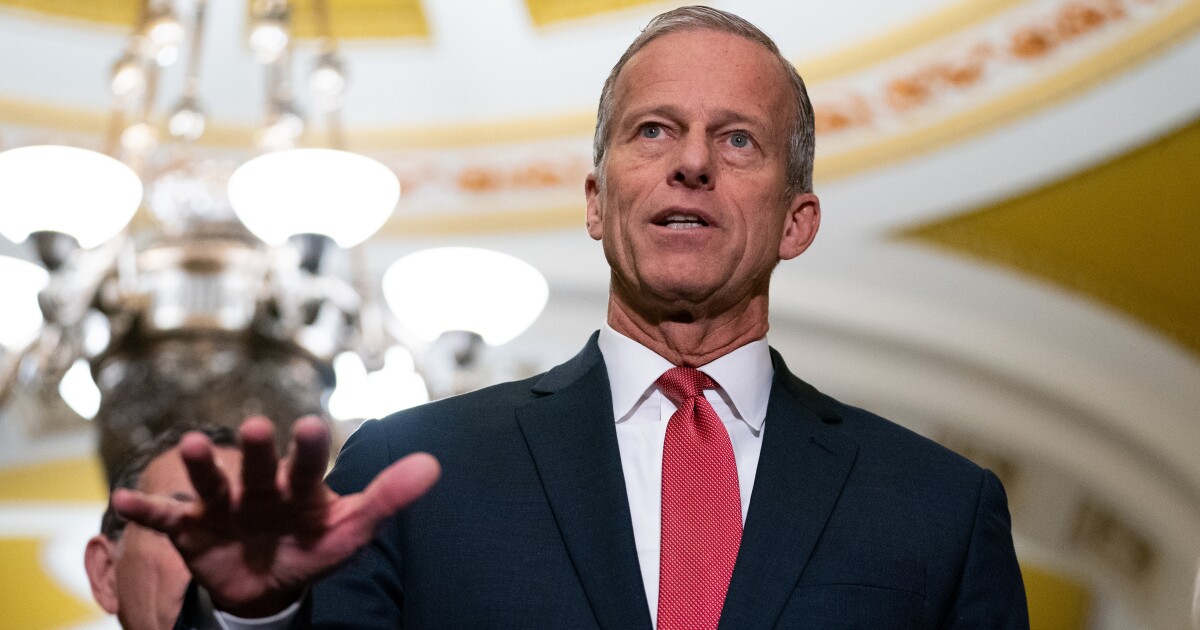The American Institute of CPAs is asking leaders of the Senate Finance Committee and the House Ways and Means Committee to make changes in the wide-ranging tax and spending legislation that was passed in the House last week and is now in the Senate, especially provisions that have a significant impact on accounting firms and tax professionals.
In a letter Thursday, the AICPA outlined its concerns about changes in the deductibility of state and local taxes pass-through entities such as accounting and law firms that fit the definition of “specified service trades or businesses.” The AICPA urged CPAs to contact lawmakers ahead of passage of the bill in the House and spoke out earlier about concerns to changes to the deductibility of state and local taxes for pass-through entities.
“While we support portions of the legislation, we do have significant concerns regarding several provisions in the bill, including one which threatens to severely limit the deductibility of state and local tax (SALT) by certain businesses,” wrote AICPA Tax Executive Committee chair Cheri Freeh in the letter. “This outcome is contrary to the intentions of the One Big Beautiful Bill Act, which is to strengthen small businesses and enhance small business relief.”
The AICPA urged lawmakers to retain entity-level deductibility of state and local taxes for all pass-through entities, strike the contingency fee provision, allow excess business loss carryforwards to offset business and nonbusiness income, and retain the deductibility of state and local taxes for all pass-through entities.
The proposal goes beyond accounting firms. According to the IRS, “an SSTB is a trade or business involving the performance of services in the fields of health, law, accounting, actuarial science, performing arts, consulting, athletics, financial services, investing and investment management, trading or dealing in certain assets, or any trade or business where the principal asset is the reputation or skill of one or more of its employees or owners.”
The AICPA argued that SSTBs would be unfairly economically disadvantaged simply by existing as a certain type of business and the parity gap among SSTBs and non-SSTBs and C corporations would widen.
Under current tax law (and before the passage of the Tax Cuts and Jobs Act of 2017), it noted, C corporations could deduct SALT in determining their federal taxable income. Prior to the TCJA, owners of PTEs (and sole proprietorships that itemized deductions) were also allowed to deduct SALT on income earned by the PTE (or sole proprietorship).
“However, the TCJA placed a limitation on the individual SALT deduction,” Freeh wrote. “In response, 36 states (of the 41 that have a state income tax) enacted or proposed various approaches to mitigate the individual SALT limitation by shifting the SALT liability on PTE income from the owner to the PTE. This approach restored parity among businesses and was approved by the IRS through Notice 2020-75, by allowing PTEs to deduct PTE taxes paid to domestic jurisdictions in computing the entity’s federal non-separately stated income or loss. Under this approved approach, the PTE tax does not count against partners’/owners’ individual federal SALT deduction limit. Rather, the PTE pays the SALT, and the partners/owners fully deduct the amount of their distributive share of the state taxes paid by the PTE for federal income tax purposes.”
The AICPA pointed out that C corporations enjoy a number of advantages, including an unlimited SALT deduction, a 21% corporate tax rate, a lower tax rate on dividends for owners, and the ability for owners to defer income.
“However, many SSTBs are restricted from organizing as a C corporation, leaving them with no option to escape the harsh results of the SSTB distinction and limiting their SALT deduction,” said the letter. “In addition, non-SSTBs are entitled to an unfettered qualified business income (QBI) deduction under Internal Revenue Code section 199A, while SSTBs are subject to harsh limitations on their ability to claim a QBI deduction.”
The AICPA also believes the bill would add significant complexity and uncertainty for all pass-through entities, which would be required to perform complex calculations and analysis to determine if they are eligible for any SALT deduction. “To determine eligibility for state and local income taxes, non-SSTBs would need to perform a gross receipts calculation,” said the letter. “To determine eligibility for all other state and local taxes, pass-through entities would need to determine eligibility under the substitute payments provision (another complex set of calculations). Our laws should not discourage the formation of critical service-based businesses and, therefore, disincentivize professionals from entering such trades and businesses. Therefore, we urge Congress to allow all business entities, including SSTBs, to deduct state and local taxes paid or accrued in carrying on a trade or business.”
Tax professionals have been hearing about the problem from the Institute’s outreach campaign.
“The AICPA was making some noise about that provision and encouraging some grassroots lobbying in the industry around that provision, given its impact on accounting firms,” said Jess LeDonne, director of tax technical at the Bonadio Group. “It did survive on the House side. It is still in there, specifically meaning the nonqualifying businesses, including SSTBs. I will wait and see if some of those efforts from industry leaders in the AICPA maybe move the needle on the Senate side.”
Contingency fees
The AICPA also objects to another provision in the bill involving contingency fees affecting the tax profession. It would allow contingency fee arrangements for all tax preparation activities, including those involving the submission of an original tax return.
“The preparation of an original return on a contingent fee basis could be an incentive to prepare questionable returns, which would result in an open invitation to unscrupulous tax preparers to engage in fraudulent preparation activities that takes advantage of both the U.S. tax system and taxpayers,” said the AICPA. “Unknowing taxpayers would ultimately bear the cost of these fee arrangements, since they will have remitted the fee to the preparer, long before an assessment is made upon the examination of the return.”
The AICPA pointed out that contingent fee arrangements were associated with many of the abuses in the Employee Retention Credit program, in both original and amended return filings.
“Allowing contingent fee arrangements to be used in the preparation of the annual original income tax returns is an open invitation to abuse the tax system and leaves the IRS unable to sufficiently address this problem,” said the letter. “Congress should strike the contingent fee provision from the tax bill. If Congress wants to include the provision on contingency fees, we recommend that Congress provide that where contingent fees are permitted for amended returns and claims for refund, a paid return preparer is required to disclose that the return or claim is prepared under a contingent fee agreement. Disclosure of a contingent fee arrangement deters potential abuse, helps ensure the integrity of the tax preparation process, and ensures compliance with regulatory and ethical standards.”
Business loss carryforwards
The AICPA also called for allowing excess business loss carryforwards to offset business and nonbusiness income. It noted that the One Big Beautiful Bill Act amends Section 461(l)(2) of the Tax Code to provide that any excess business loss carries over as an excess business loss, rather than a net operating loss.
“This amendment would effectively provide for a permanent disallowance of any business losses unless or until the taxpayer has other business income,” said letter. “For example, a taxpayer that sells a business and recognizes a large ordinary loss in that year would be limited in each carryover year indefinitely, during which time the taxpayer is unlikely to have any additional business income. The bill should be amended to remove this provision and to retain the treatment of excess business loss carryforwards under current law, which is that the excess business loss carries over as a net operating loss (at which point it is no longer subject to section 461(l) in the carryforward year).
AICPA supports provisions
The AICPA added that it supported a number of provisions in the bill, despite those concerns. The provisions it supports and has advocated for in the past include
• Allow Section 529 plan funds to be used for post-secondary credential expenses;
• Provide tax relief for individuals and businesses affected by natural disasters, albeit not
permanent;
• Make permanent the QBI deduction, increase the QBI deduction percentage, and expand the QBI deduction limit phase-in range;
• Create new Section 174A for expensing of domestic research and experimental expenditures and suspend required capitalization of such expenditures;
• Retain the current increased individual Alternative Minimum Tax exemption amounts;
• Preserve the cash method of accounting for tax purposes;
• Increase the Form 1099-K reporting threshold for third-party payment platforms;
• Make permanent the paid family leave tax credit;
• Make permanent extensions of international tax rates for foreign-derived intangible income, base erosion and anti-abuse tax, and global intangible low-taxed income;
• Exclude from GILTI certain income derived from services performed in the Virgin
Islands;
• Provide greater certainty and clarity via permanent tax provisions, rather than sunset
tax provisions.


 Accounting1 week ago
Accounting1 week ago
 Personal Finance1 week ago
Personal Finance1 week ago
 Accounting1 week ago
Accounting1 week ago
 Finance1 week ago
Finance1 week ago
 Economics1 week ago
Economics1 week ago
 Economics1 week ago
Economics1 week ago
 Economics1 week ago
Economics1 week ago
 Personal Finance1 week ago
Personal Finance1 week ago












